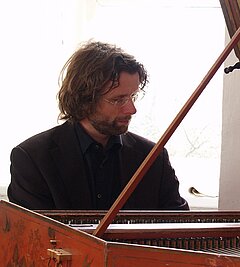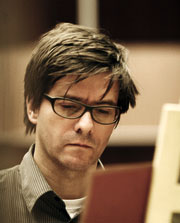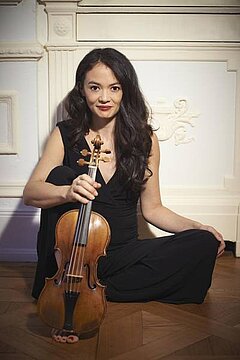Early Music
At the Folkwang University of the Arts, Early Music is offered alongside an instrumental specialisation for 'Historical Performance Practice' as a modular component of all other instrumental, theoretical and academic study courses. What is special in this regard is the fact that Early Music does not take place behind the closed doors of a department for specialists, but is part of a recognised form of general education. The focus, though, is on the subject-related study programme.
At Folkwang, training in the "Early Music" specialised section is possible with the following main subjects and study courses:
- Historical Violin/Viola (B.Mus., Instrumental Master)
- Baroque Cello (B.Mus., Instrumental Master)
- Historical Transverse Flute (B.Mus., Instrumental Master)
- Harpsichord (B.Mus., Instrumental Master)
- Basso Continuo (Professional Performance Master)
This is accompanied by a whole set of subject-related secondary fields of study:
- Source study
- General basso continuo teaching
- Introduction to the historical performance practice
- Music score editing practice
In accordance with the "Folkwang ideal" of the interaction of different artistic genres, the historical training at the Folkwang University of the Arts should be perceived as part of an interdisciplinary holistic entirety – with no external isolation, no shying away either from cooperations with other art and teaching disciplines or from collaboration with study courses or experimental presentations outside this field.

![[Translate to English:] [Translate to English:]](/fileadmin/_processed_/9/d/csm_Markus-Hoffmann_eda46e8abe.jpeg)




